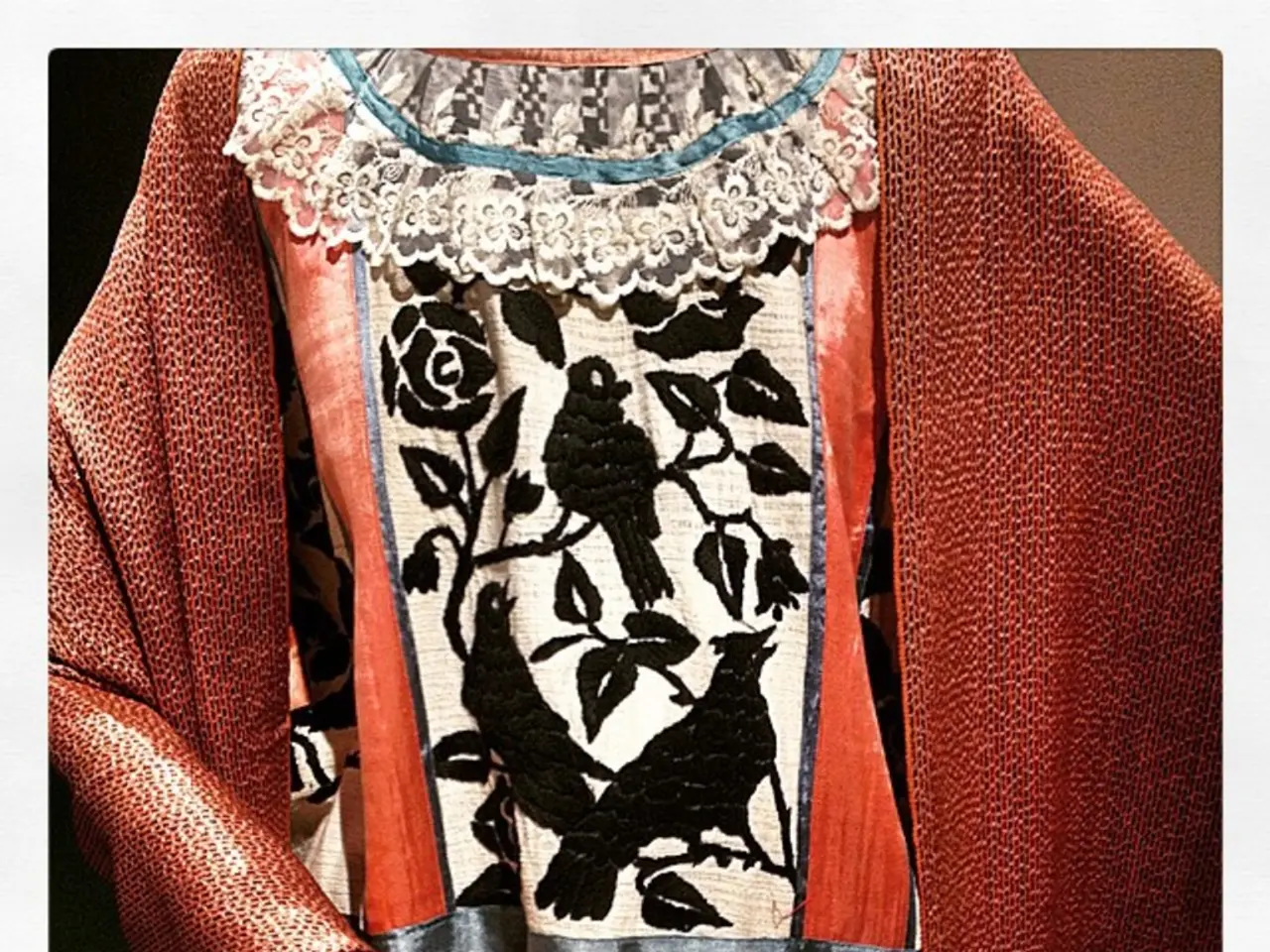State enforces prohibition on retailing garments of recognized Belarusian fashion label
In a recent move to ensure consumer safety and maintain industry quality norms, several clothing brands from Belarus, Russia, and Poland have had their products banned due to insufficient air permeability. This issue arises when fabrics or leather do not allow adequate air and moisture vapor to pass through, potentially leading to discomfort, skin irritation, or other issues for consumers.
Air permeability is a critical quality indicator for clothing materials, as it affects moisture evaporation, comfort, and overall wearability. The norm for air permeability in clothing is at least 60 dm/(m·s). However, some tested samples from brands like Big Star, AO "ELIS FASHION RUS", and ChUP "ADESart" in Grodno, Belarus, have fallen short of this standard.
In a particularly shocking case, the air permeability of the lining in a men's jacket from Big Star was less than 1 dm/(m·s). Over 30 different products from Big Star, including socks, jackets, dresses, and shirts, have been banned in Belarus. Similarly, clothing from two Belarusian brands has failed to meet the air permeability standards set by the Gosstandart, the body responsible for setting and enforcing product safety standards in Belarus.
The Gosstandart in Belarus has not yet added Big Star to the list of Belarusian brands with poor quality products, but it has updated its list of dangerous products to include clothing from Belarusian production. On the other hand, the Gosstandart in Russia has not yet banned any products from Big Star, nor has it added the Polish brand to its list of dangerous products.
This ban likely stems from the failure to comply with established textile standards that ensure consumer safety and product quality in terms of air and water vapor permeability. Clothing products that fail these standards could be restricted from sale to protect consumers and maintain industry quality norms.
It's worth noting that no direct details were found on the ban linked to any political or sanction-related reasons in the cited results. However, the emphasis on air permeability as a quality measure suggests the bans were for material performance reasons, not geopolitical factors.
In conclusion, the insufficient air permeability of certain garments has led to bans to prevent substandard products from circulating in the market. This underscores the importance of adhering to textile quality standards to ensure consumer safety and satisfaction.
- Science plays a crucial role in evaluating the air permeability of clothing materials, as it helps ensure consumer comfort and health-and-wellness.
- In the realm of fashion-and-beauty, adherence to strict air permeability standards is essential to prevent skin irritation and discomfort for consumers.
- General news outlets have reported on several instances of clothing brands failing to meet air permeability norms, which may impact their product quality and industry standing.




